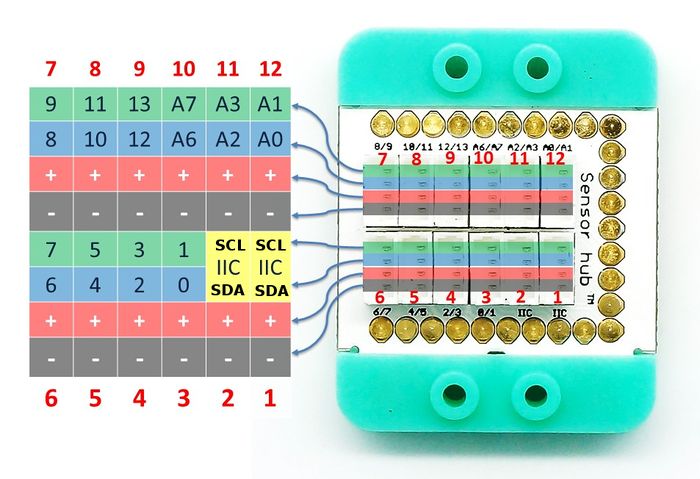|
Microduino-Pulse is a heart rate or pulse sensor with a higher accuracy.
This sensor adopts photoelectric plethysmography, which can detect heart rate and use different light transmittance caused by the human tissue in vessel pulsation to measure the pulse. With an optical amplifier to detect changes in blood volume and get human body's real-time heart rate. Generally, it can be worn on a finger tip, earlobe or other capillary ends.
Features
- Low power consumption
- High flexibility
- Small and easy to install.
Specification
- Electrical specification
- Operation voltage: 1.8V-5.5V
- Input device
- Tech parameters
- Operation temperature: -40°C-85°C
- Lead free packaging, complying with ROHS standard.
- Supply current: IQ = 100µA (typical)
- 90°phase margin(typical)
- Adopt MCP6001 1MHZ low-consumption amplifier
- 1MHz gain bandwidth product (typical)
- Adopt APDS-9008 analog input environment brightness sensor
- Size 尺寸
- 1.27mm-pitch 4Pin interface
- Size of the Switch: 5mm*5mm,
- Size of the Board: 20mm*20mm
- Connection method
- Pin description: GND, VCC, signal output and NC(Empty).
Note: This output signal is analog signal, which needs analog interface to detect(A0~A7). You can connect it to the pins--1,2,10,11 and 12 of the Sensorhub with correpsoinding pins-- IIC(A4), IIC(A5), A6, A2 and A0
Document
Development
Preparation
Program
Microduino_Pulse_measurement
Hardware Buildup
- All hardware needed(Except core module): Microduino-Cube-S1, Microduino-OLED, Microduino-Sensorhub and a USB cable as well as some connectors.
- Stack all modules together, insert the pulse sensor into the A0 slot of Microduino-Sensorhub with the connector and connect Microduino-OLED with Microduino-Cube-S1 board's IIC interface via an OLED wire.
- Open test program, choose the right board, compile and download.
- After download, you can see OLED's interaction interface. The first line shows pulse rate and the second lines displays time and calculate the total heartbeats.
- The pulse sensor starts counting when you press your finger tip onto it and it will calculate heartbeats after around 10 seconds.
- Move your finger away and the system will clear automatically .
Application
Microduino-Pulse sensor can be applied in smart hand belt, detecting heartbeats during physical exercise so that you can adjust yourself.
Project
Purchase
History
Pictures
|
